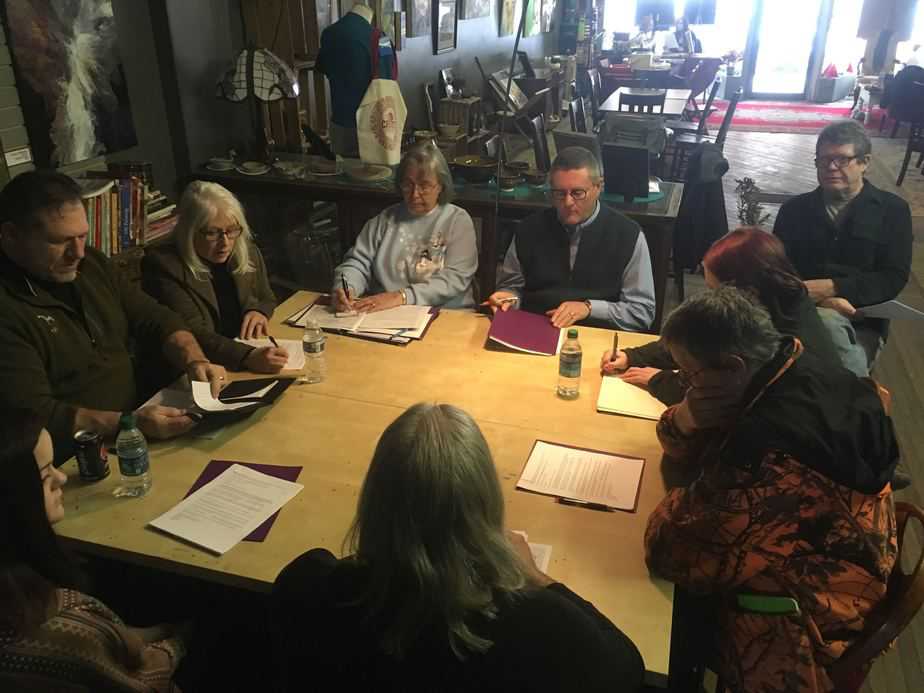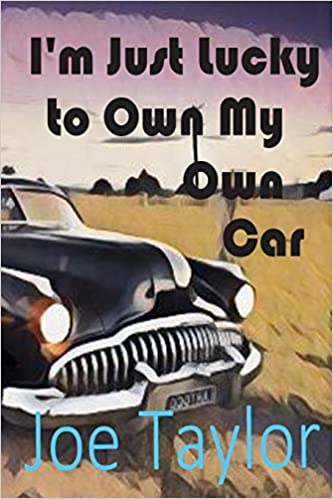by Jessica Weible
Executive Editor for TWJ
We often think of writing as a very solitary act. In fact, most of the writers I know are grade A introverts. It’s true, great work can be produced inside the mind of a recluse, free from distraction. Consider Emily Dickinson or Henry David Thoreau. These are two writers, by design or by circumstance, who withdrew from the rest of the world to contemplate important philosophical and sociological questions. Their prolific work continues to inspire academics, artists, writers and readers centuries later.
But even the most renowned writers in the literary canon got stuck sometimes. Consider this piece by British surrealist poet Edward James who published six books of poetry. James is also known for sponsoring surrealist painter Salvador Dali for a whole year and during that time, Dali produced a series of paintings that would make him famous. But yes, even James, who produced and supported great creative enterprises, suffered from writer’s block. In the following poem, he chronicles his experience with writer’s block:
I sit down peacefully with my book.
Upon the blank page I look.
As I tap my pen patiently, patiently,
Patiently waiting in my writing nook.
Soon ideas I begin to see,
Like ships setting out to sea;
And as my pen moves they flow, flow,
Flow graciously out of me.
But today is not the same.
Ideas are stuck in my brain,
As I sit and think, think,
Think of something lame.
And it is to my simple shock,
That I have no ideas in stock,
For today I’m afraid I’m stuck, stuck,
Stuck in a writer’s block.
In my past life as a middle school English teacher, I grappled with writer’s block all the time. Not my own, of course, I was too busy grading papers to even come up for air, but with my students. Plagued by the self-consciousness that defines the adolescent years, my students constantly struggled with any type of expression, let alone written expression.
It wasn’t until an education conference where I attended a workshop on collaborative writing that I started to equip myself to help my students plough through writer’s block. Now, collaborative writing may sound like counterintuitive to my introvert friends, but as soon as I saw the approach of the instructors at the workshop, I understand how collaborative writing can not only make writing accessible to reluctant writers, but also open up a world of possibility for expert writers.
As writers, we bring our own set of experiences and perspectives to whatever we write. That’s part of what makes writing compelling. But with collaborative writing, you bring in the experiences and perspectives of several other writers as well as your own. By including more writers in the process for a single written piece, you enrich the word choice, syntax and thematic elements dramatically. Sometimes the product gets muddled with competing ideas and approaches. But more often than not, particularly if there is no ego or agenda brought to the table, the product of collaborative writing is something that astonishes the participants.
My favorite collaborative writing exercise was the first one we did in the workshop that day. It’s called Exquisite Corpse. Here is a link that provides more background and detail: Poets.org, but basically you write a poem with at least one other writer. The only instruction is to clear your head and write the first phrase that comes to mind. You take turns, passing a piece of paper back and forth, but folding each line so that your partner(s) can’t see what you wrote.
I did the exercise with the workshop instructor and I couldn’t believe how exciting it was to write a poem having no control over how it would all come together until the end. Incredibly, the poem we wrote had meaning, and it conveyed the meaning in a way that I would never have been able to construct on my own.
I’ve played around with the structure of the exercise, asking students to use certain types of figurative language in each line, or attempt a meter in the phrases they write. But it is always a big hit every time I’ve done it–particularly with reluctant writers or writers who struggling with self-doubt and crippling writers block. It’s one way to remind us that everyone is a writer. That’s not to say that there isn’t a craft to writing because I very much believe that there is. But there is also something instinctual about the way we search for meaning in everything we do. Collaborative writing forces us to find meaning together.
So, next time you are struggling to feel inspired, try reaching out to someone to write collaboratively. Immediately, you’ll start to feel the creative surge when you connect with someone else to create something both personal and collective.





This amazing group of people have renewed my belief in myself. Not that I didn’t believe I had stories that needed told; but in believing others want to read them.